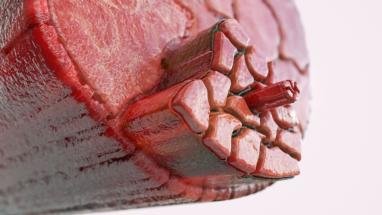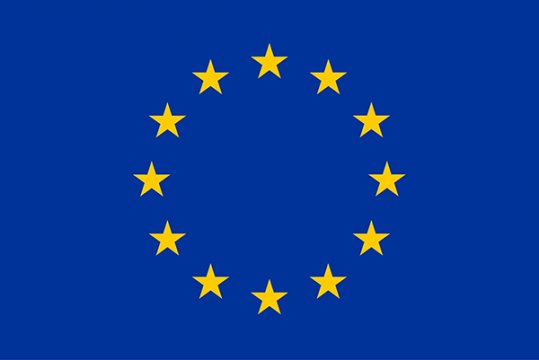3D rendering of skeletal muscle fibre.

Milan, 8 July 2020 – Dissecting and recreating the complex molecular and cellular interactions which occur during muscular regeneration to fight the effects of dystrophies and the ageing process. That’s the aim of RENOIR (REcreating the ideal Niche: environmental control Of cell Identity in Regenerating and diseased muscles), a project funded by the EU as part of Horizon2020, MSCA - Innovative training networks.
The project – which has been awarded almost €3.5 million in funding, with Milano-Bicocca set to receive over €350,000 – is being coordinated by Silvia Brunelli, a professor in Applied Biology from Milano-Bicocca’s Medicine and Surgery Department. RENIOR is based on a multi-discipline approach featuring involvement from academics and figures from the industry who specialise in the field of muscular regeneration, stem cells and the ageing process. The experts come from six countries both inside and outside of the EU.
The task force, which includes specialists from a range of different fields, from biology to engineering, will attempt to discover the molecular mechanisms that control cellular identity and how cells interact during the process of muscle remodelling. To achieve this, the RENOIR team will work on producing innovative devices and 3D culture systems for muscular, vascular and immune stem cells, as well as experimenting with therapeutic approaches which make use of new, semi-synthetic biomaterials, such as hydrogels linked to collagen and fibrinogen.
Thus far, working on an individual basis, the members of the RENOIR project have made substantial contributions to the identification of key molecules produced during the regeneration and senescence processes and the characterisation of various types of muscle cells which could have a bearing on the processes of muscular repair and degeneration. However, the extremely complex nature of cellular and molecular interactions has made it difficult to build up a complete understanding of muscle remodelling.
“It’s only by combining different, complementary skills that we’ll be able to shed light on all the connections that take place during the remodelling of healthy, pathological and senescent muscle tissue,” explains Silvia Brunelli of the University of Milano-Bicocca. “Part of RENOIR’s goal is to train 13 young researchers, who will get the chance to operate at a high level within the field of muscle regeneration and ageing.”
Muscle diseases can manifest themselves in a variety of ways and at any time from infancy to adulthood. They include both hereditary and acquired problems, with muscular dystrophies – a class of hereditary diseases – affecting 300,000 European citizens on its own. Meanwhile, skeletal muscle and cardiac ischaemia are among the main aggravating causes of many diseases present within the population.
As such, the RENOIR project aims to contribute to one of Europe's biggest challenges for the future: ensuring that a population with a rising average life expectancy remains healthy and active and improving the quality of life of people affected by chronic illnesses.

The project receives funding from the EU's Horizon 2020 research and innovation programme as part of the Marie Skłodowska-Curie Grant Agreement No. 860034.